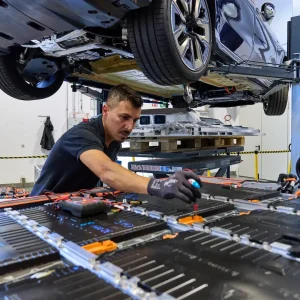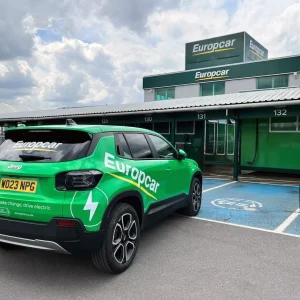Firms running grey fleets need to ensure they have the right policies in place to manage them.
That’s according to Andrew Leech, managing director of Fleet Evolution, who discussed grey fleet and salary sacrifice schemes at the start of a series of free webinars the company is running for fleet managers.
Leech explained that employers running grey fleets, with employees driving their own cars, must have a robust safety policy, setting out how employees should drive when on company business, with written confirmation that the policy has been communicated and understood, which could be accomplished through inclusion on an expenses form.
He said employers also needed a documented process to renew and improve this policy.
Leech said, “Grey fleet is all about making sure the vehicle and employee are fit for purpose.
“Make sure the employee is appropriate to be using the vehicle on company business, and make sure the vehicle is maintained and run correctly.”
Drivers travelling for work were more likely to be involved in accidents than regular motorists, Leech said, as they drove at riskier times of the day and were more likely to be keeping strict appointments, making them prone to risk-taking if they were running late.
He also warned that employees claiming 45p a mile for grey fleet journeys would therefore be incentivised to use their own cars, rather than considering a hire car or public transport, which could be cheaper and safer.
Leech explained any employee using their own vehicle for a business journey not to their usual workplace would be making a grey fleet journey. He said that, at a bare minimum, employers should be doing driving-licence photocard checks and making employees ensure vehicle condition checks and MOTs are carried out.
He continued, “If you want to go a step further, what you really should be doing as a responsible employer is DVLA licence checks. You should ask for a copy of their insurance and make sure it’s got business cover, and you should be asking for MOT and
service certificates.”
Leech said employers should have a permit-to-drive system, where a driver has to pass the checks before they could claim mileage.
He said, “If they don’t have a permit they can’t claim mileage, and if something happens you can say to the Health and Safety Executive ‘we are not responsible’.
“The Health and Safety Executive says that for anybody operating in a place of work, which could be on four wheels, you have to protect that place of work, everyone inside it and everyone who may come into contact with it.
“If you’ve got a rusty 20-year-old Ford Fiesta driven by an 18-year-old, it’s your job to make sure they’re safe.”
Leech also said employers should have a drink and drugs policy. He continued, “If you want to go one step further you could do driver training, but you don’t need to. If you spot someone constantly clipping wing mirrors or kerbing wheels, you can consider it.”
Leech added that telematics systems were “a sledgehammer to crack a nut” in terms of duty of care, although they could be useful for a mobile workforce, such as field engineers.
On the subject of salary sacrifice schemes, which Fleet Evolution offers, Leech said that although employers could no longer make National Insurance savings through these schemes, they were good for recruiting and retaining employees.
He added that, with tax on the schemes now geared towards rewarding drivers of low-emission vehicles, the schemes were a good way for companies to boost their CO2 credentials.
Leech said, “The scheme works up to about 120g/km in CO2 emissions. The higher the CO2 emissions, the more the benefit reduces through salary sacrifice.
“Salary sacrifice schemes on the whole reduce all cars to about half the cost they would be as a personal lease car, before Benefit In Kind tax, and that varies depending on how green the car is.
“For pure electric or very low-emission cars, there will be significant savings. If you want a Land Rover Discovery, it’s not really going to work.”
Leech added that although some drivers did opt to choose vehicles emitting more than 120g/km of CO2, they appreciated having the hassle of managing the vehicle taken away from them.





